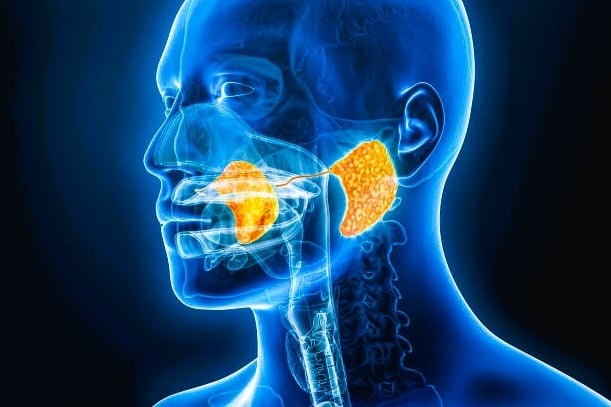Salivary Gland Disorders: Causes, Symptoms, and Treatment
" Discover causes, symptoms, and treatments for salivary gland disorders. Learn effective management strategies and essential insights on this condition . "


Salivary Gland Disorders
Salivary gland disorders refer to a range of conditions that affect the normal functioning of the salivary glands. These glands, located in and around the mouth, produce saliva, which is essential for proper digestion and oral health. When these glands are not functioning correctly, it can lead to various symptoms and complications.
Causes of Salivary Gland Disorders
Salivary gland disorders can be caused by several factors, including:
Infections: Bacterial or viral infections can lead to inflammation and blockage of the salivary glands.
Salivary Stones: These are calcified deposits that can block the ducts of the salivary glands, causing pain and swelling.
Tumors: Both benign and malignant tumors can develop in the salivary glands, affecting their function.
Autoimmune Disorders: Conditions like Sjögren's syndrome can cause inflammation and damage to the salivary glands.
Medications: Certain medications can reduce saliva production, leading to dry mouth and potential gland dysfunction.
Symptoms of Salivary Gland Disorders
The symptoms of salivary gland disorders can vary depending on the specific condition, but common signs include:
Swelling and pain in the affected gland or glands.
Dry mouth and difficulty in swallowing or speaking.
Tenderness and redness in the affected area.
Bad breath and altered taste sensation.
Formation of a lump or mass in the mouth or neck.
Treatment of Salivary Gland Disorders
The treatment approach for salivary gland disorders depends on the underlying cause and severity of the condition. Some common treatment options include:
Medications: Antibiotics may be prescribed to treat infections, while medications that promote saliva production can help with dry mouth.
Sialendoscopy: This minimally invasive procedure uses a thin tube with a camera to remove salivary stones or other blockages.
Surgery: In cases of tumors or severe gland dysfunction, surgical intervention may be necessary to remove the affected gland or glands.
Home Remedies: Simple measures like staying hydrated, practicing good oral hygiene, and using warm compresses can help alleviate symptoms.
If you are experiencing any symptoms of a salivary gland disorder, it is important to consult a healthcare professional for an accurate diagnosis and appropriate treatment. Early intervention can help prevent complications and improve overall oral health.
